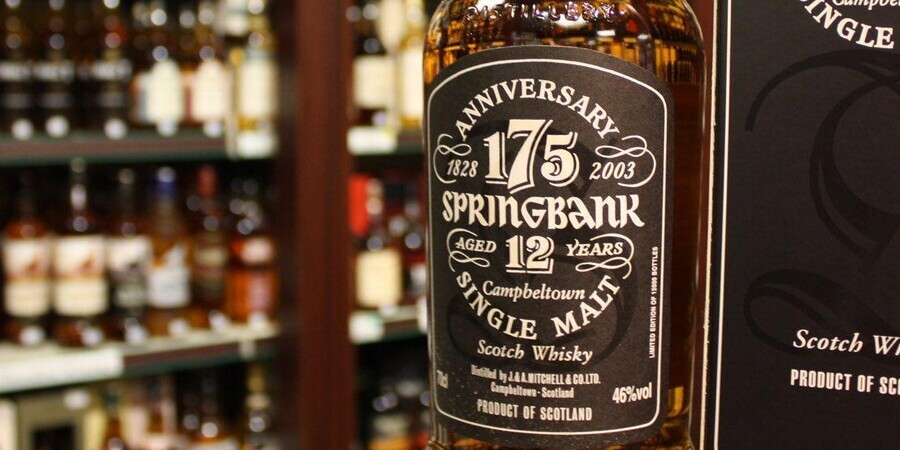SPRINGBANK The decline of Campbeltown as a distilling capital came suddenly. Of the 21 distilleries that Barnard visited, only two are still in existence and one of them, Glen Scotia, is open only intermittently. The good news is that you will soon be able to buy five different Campbeltown malts; four from one distillery - the legendary Springbank.
[%snippet beer%]
A resolute pillar of tradition, family-owned Springbank is the only malt distillery where the entire process from malting to bottling is carried out on the same site. In fact, flying in the face of convention, the firm reintroduced floor malting in 1992. 'People tell us that our hands-on approach is special,' says Ewan Mitchell, who handles marketing. 'Because it has been in the hands of the same family for so long, our chairman is determined to keep it the way he inherited it. Fortunately we've got a good reputation and consumers want to see it as people-based. Our independence is obviously as important to them as it is to me.'
But is Springbank just an anachronism in today's industry? 'The industry is becoming less and less traditional,' says Ewan, 'but we're against change for change's sake. It's easy to impose new methods but lose sight of the product. At the end of the day we control the bottled product from start to finish.'
For manager Frank McHardy, tradition makes a difference to the quality of the spirit. 'People are totally involved in the product,' he says. The guys have to work it, make the malt, mash it and distil it - there's total involvement. We're also employing 25 people in Campbeltown and, given the economy of Kintyre, that's very important.' Frank's tour of duty has seen him manage Bruichladdich on Islay and Bushmills in Northern Ireland, before returning to Springbank; thus he has run three very different distilleries in the 30-mile radius which most historians agree is the cradle of whisky making.
His Bushmills' experience is proving particularly useful in developing Springbank's latest addition, a triple-distilled unpeated malt called Hazelburn, which is due to appear in 2002.
TASTING NOTES
Springbank 10-year-old
46%ABV full, malty nose with some sea air, spice, pigskin and toffee apple. Very smooth and sweet to start then a fusillade of flavours -dried herb, butter, salt, smoke, vanilla pod, moss and flowers. A great package.
Springbank 15-year-old
46%ABV Well balanced between vanilla, creme brulee, salty sea air burnt range and smoky wood. A silky mouthful though the wood is a little prominent then a splash of sea spray on the finish.
Springbank 21-year-old
46%ABV Amber colour. Peach, raisin ozone, smoke, fluxing between caramelized orange and salt. Smooth start, then some heather, raisin, clootie dumpling coconut matting and the signature salty finish.
Springbank 1966 Local Barley
54.4%ABV Huge nose mixing coal bunker, sweetly ripe fruit, hickory wood and almost rancio-like aromas of mushroom, leaf-mould, anise and smoke. Explodes on the palate: biscuity, then some toffee, hickory chips, smoke and sea air. A fascinating mix of sweet and sour.
Longrow 10-year-old
Attractive mix of muted/turfy peat smoke with a perfumed rose-petal lift. A drop of water kindles the peat fires but always balanced by a lavender/rose-scented perfume. Silky, briny with a rich coal-tar/perfumed finish.


